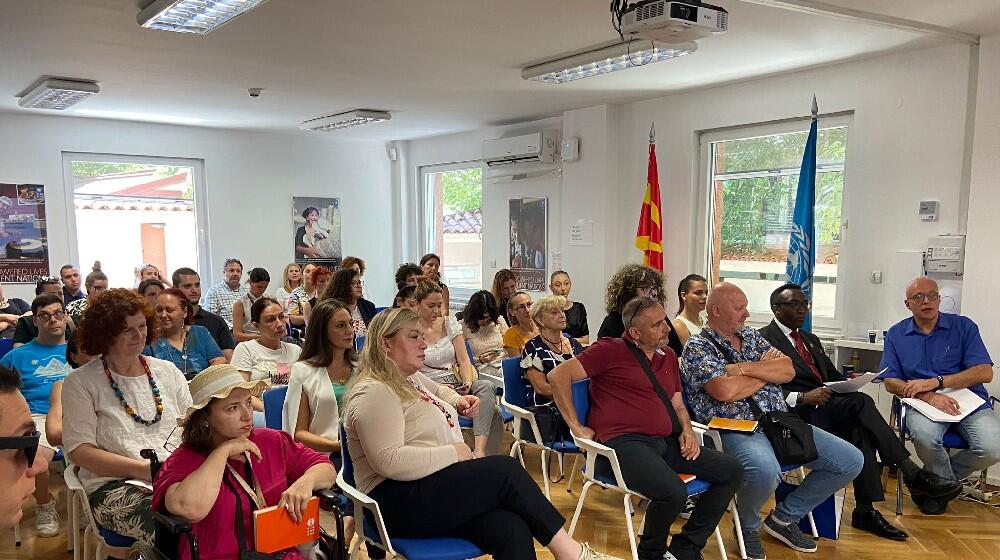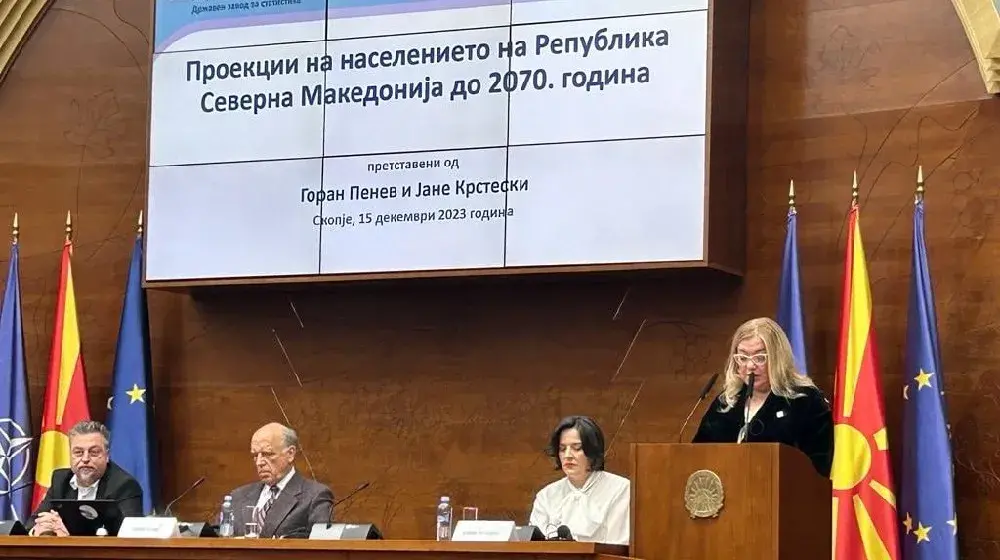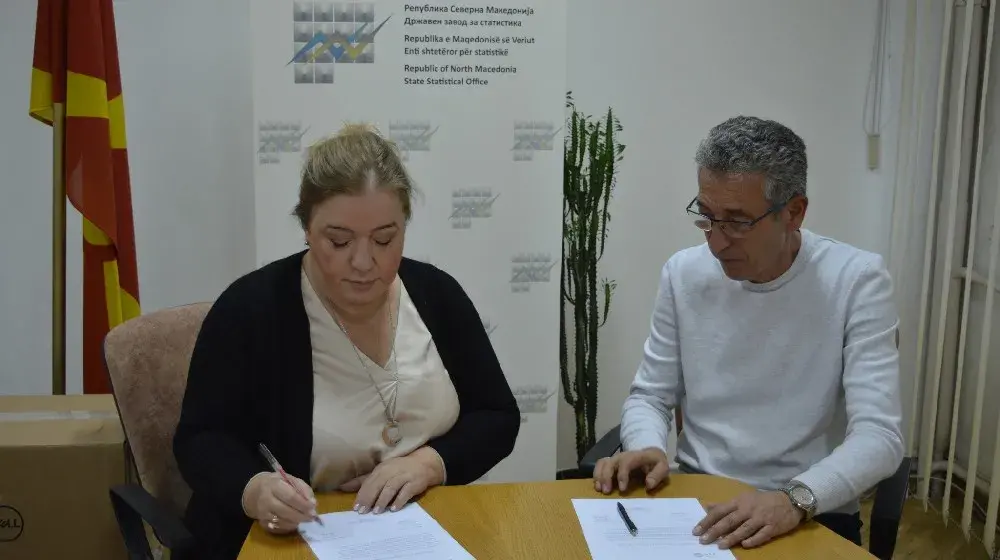Skopje, 11 July 2024 – The research “Invisible Threats: Technology-facilitated gender-based violence (TFGBV) against persons with disabilities” was promoted today in Skopje, in the presence of about 60 stakeholders.
The event marked 11th of July – World Population Day, hosted by the United Nations Population Fund (UNFPA), and opened the floor for a constructive discussion with persons with disabilities, organizations of persons with disabilities, women’s organizations, experts, UN agencies etc.
In the opening remarks, John Kennedy Mosoti, Country Director of UNFPA North Macedonia, highlighted the importance of the need to collect and analyse data as one of the key factors for monitoring and achieving the Sustainable Development Goals. One of the researchers, Sara Milenkovska, discussed the intersection of disability, gender, and technology, and provided an overview of the research objectives and methodology, whereas the other two researchers, Irena Lozana and Kristijan Lazarev, presented the research findings and recommendations.
This type of research is necessary because the impact of technology-facilitated gender-based violence on persons with disabilities has not been researched sufficiently, and this type of violence is a relatively recent phenomenon. The value of the research is that it explores an intersectionality between disability, gender, inequalities and violence, analysing the position of victims of discrimination and violence across multiple axes.
Technological innovations and online platforms have a significant potential to improve the lives of persons with disabilities, but they can also become a means for potential abuse or discrimination. Although this research was limited, both in terms of the total number of respondents, and the thematic desk analysis, it still led to the conclusion that persons with disabilities are at much greater risk of becoming victims of technology-facilitated gender-based violence than persons without disabilities; awareness raising is required, as well as strengthening of the services for survivors in order for them to be inclusive of persons with disabilities.
The research was funded by the UNFPA program “We Decide” which is a program whose goal is to promote the human rights and social inclusion of women and young persons with disabilities, with a particular focus on studying and enabling access to sexual and reproductive health services, as well as information and education for persons with disabilities, including prevention and addressing sexual and gender-based violence.





